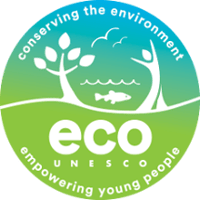Last November, on the ‘No Time to Waste’ Youth Summit, young people from across Ireland had the opportunity to talk to environment experts and policy makers about the waste issue in the country and some of the conclusions were shocking. Recent statistics show that Ireland had the sixth highest level of municipal waste per person in the EU, with a little less than 600kg of waste per capita each year. Data also show that each Irish household produces, on average, almost €1,000 worth of food waste and that Ireland is one of the top plastic waste producers in Europe, with 61kg per person.
Despite these statistics may look discouraging, they could, in fact, motivate young people to start making a difference immediately.
We talked about the importance of reducing waste several times, but here is some more information on how to make more sustainable choices and produce less waste.
At home
- As far as food is concerned, it would be a good habit for the whole family to make a meal plan and shop only for what is necessary, to avoid food waste. You can make a shopping list to help you buy only what you need and avoid buying what you already have in the house.
- Ditch plastic bags, start using reusable containers to store your food and switch to cotton napkins and washable cloths, as a sustainable alternative to paper towels.
- When it comes to your personal hygiene, try alternative products, such as bamboo toothbrushes or shampoo and body-wash bars, instead of the ones sold in plastic bottles. These items have been gaining a lot of popularity lately, so it will be easier than you think to find them in any shop.
- Give objects a second chance! Instead of discarding broken objects and clothes, try to repair them or create something new with them. This is a great way to get creative too.
- Give objects that you don’t use, unwanted gifts or clothes that don’t fit anymore to charities or someone you know that might use them, instead of throwing them away.
- Start composting. This is much easier than it sounds, and it could be a nice project to carry out with your family.
In school
- Use lunch boxes and bring your drinks in thermos and refillable water bottles. If you do use plastic containers, clean them and recycle them.
- To reduce paper waste, avoid printing handouts and other materials by using projectors or whiteboards. Print double-sided if you need to and use both sides of notebook pages. Write your notes on used papers when possible and it could be a good idea to set up a box where pages with blank sides can go, so that they can be used again.
- Buy notebooks made of recycled paper, recycle any materials you use and be an example for other young people in the school.



